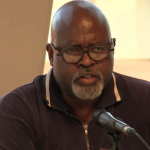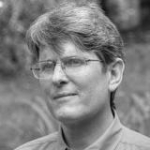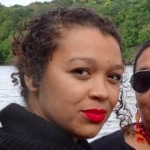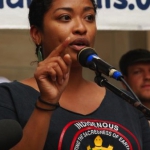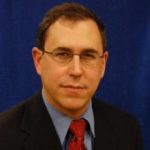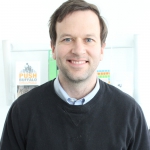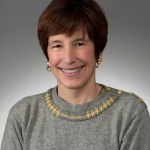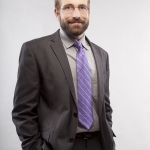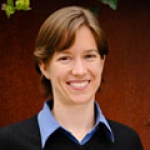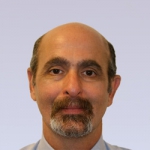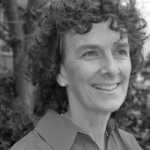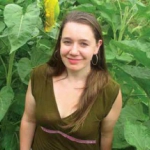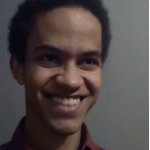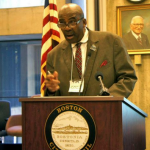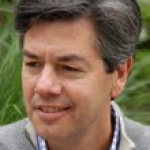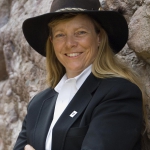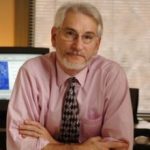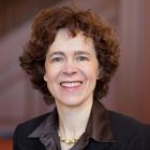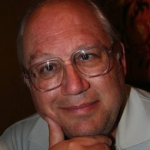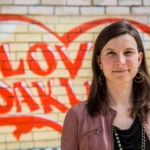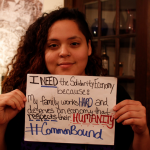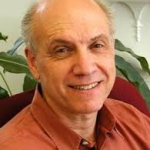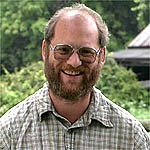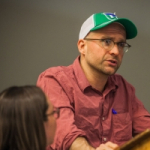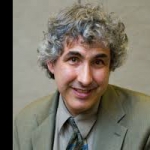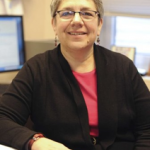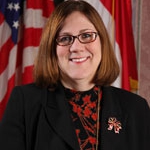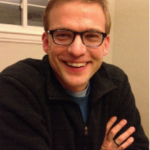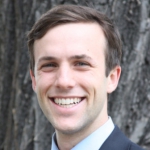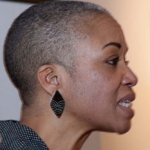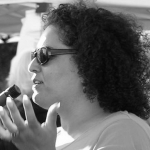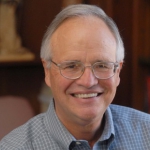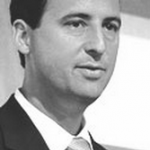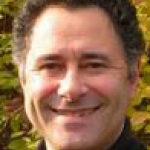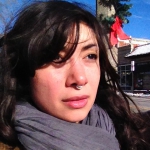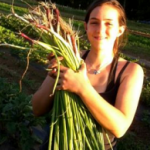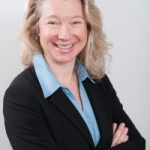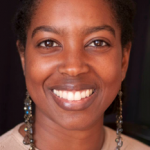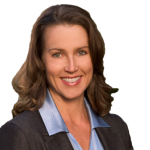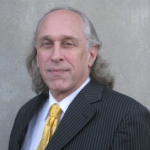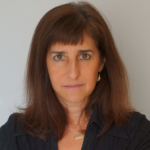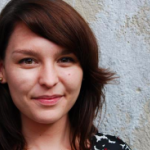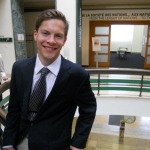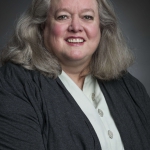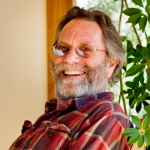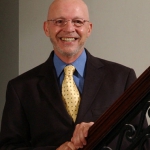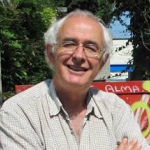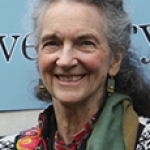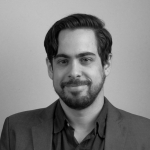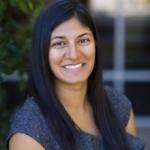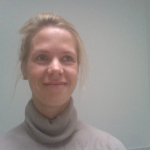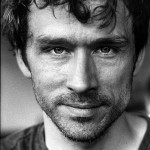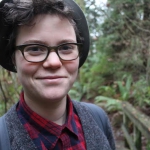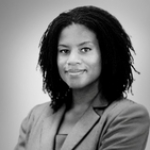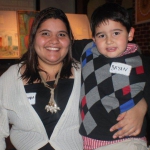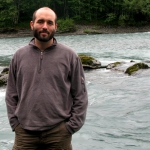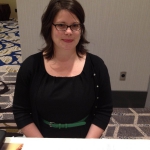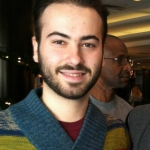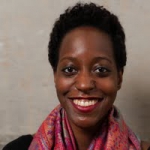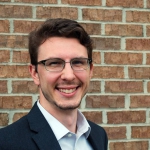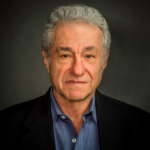Schedule
11:30 AM to 4:30 PM
Organized by Juliet Schor (Boston College, Summer Institute in New Economics), this workshop features the work of graduate students, scholars, and researchers who are have conducted innovative work on the new economy.
Collaborative live notes: https://commonbound.hackpad.com/Research-Workshop-on-the-New-Economy-XIH...
Read More2:00 PM to 4:00 PM

Before the official start of CommonBound, we are teaming up with JP NET and the Dudley Street Neighborhood Initiative to offer two new economy tours of Boston, one in Jamaica Plain and the other in the Dudley neighborhood.
Read MoreCome to a free workshop for entrepreneurs to learn about Direct Public Offerings (DPO’s) as a tool to “CrowdSource” capital from your community. We’re all familiar with sites like Kickstarter to raise donations. With DPO’s, you can crowdsource a range of investments from your supporters to start or grow your business. Hosted by the Boston Impact Initiative and the New Economy Coalition.
Read More3:00 PM to 9:00 PM
5:00 PM to 6:00 PM
6:00 PM to 7:00 PM
7:00 PM to 8:30 PM
What is involved in a just transition from an extractive “banks and tanks” economy to a regenerative and democratic one? How can each of us play a role in planning and effecting this transition? We will hear about the challenges of community-led just transition, discuss emerging sectors of the new economy and explore the potential for resourcing these sectors through non-extractive finance.
Read More8:30 PM to 10:30 PM
Please note that this is a space reserved for people who identify as persons of color. Thank you!
Read More8:00 AM to 5:00 PM
9:00 AM to 10:00 AM
10:15 AM to 11:30 AM
Chief among the barriers we face in trying to transform our economic system is a web of local, state, and federal policies that concentrate economic power, undermine community-scaled enterprises and systems, and strip citizens of their capacity and authority to determine their own economic future. This workshop will focus on crafting a countervailing political narrative and shared policy framework for devolving economic power and advancing a just, sustainable, and community-scaled economy....
Read MoreThe new economy conversation includes many aspirational ideas about transforming capital markets; including changing market structures, governance, metrics and incentives, all to redirect investment away from short-term private profit and toward long term public needs. While these ideas are exciting, the more immediate and prosaic problem faced by those of us who are trying to build a new economy is how to access financing now for innovative economic enterprises.
Read MoreInnovative organizations are emerging everywhere in the new economy - worker cooperatives, social enterprises, sharing economy enterprises, transition groups, time banks, land trusts, and much more. The governance structures of these organizations will, in essence, build the governance framework for a new economy.
Read MoreAffordable access to land is a key component of economic justice. Control over resources empowers communities, and ownership enables the building and recycling of wealth. In this workshop, we explore how shared equity models of ownership for land and buildings can spread the benefits of land access and ownership more broadly and equitably.
Read MoreIn this workshop, we will explore the role of private prisons in perpetuating mass incarceration as well as an emerging prison divestment campaigns taking off at colleges and in communities around the country. The Corrections Corporation of America and the GEO group are the two largest private prison companies in the country and are making billions by locking people up.
Read MoreExciting New Economy efforts are brewing across Boston neighborhoods. Hear about projects that are modeling democratic alternatives to "business as usual" and are doing it in relation to Boston's grassroots organizing field. Learn about participatory budgeting, community land trusts, green worker co-ops, youth led urban agriculture and local impact investing. Engage with some of Boston's most innovative activists in large panel and breakout formats.
Read MoreAs the Regenerative Economy continues to emerge, with small-scale enterprises and projects depending on funding from a limited pool of mission-aligned financial capital, important questions about whether and how this economy can be scaled up, and financed, are at play:
Read MoreRecent decades have seen a marked decline in union density in the US and Canada due, in large part, to a combination of increased political attacks on unions and the increased mobility of global capital. This panel will highlight several innovative labor organizing models that offer exciting approaches to meeting the unique challenges of our time. The Freelancers Union is the nation's largest group representing the growing independent workforce.
Read MoreMore than two million Americans will cut their working hours because they now have health care under the Affordable Care Act. Workers in Amador County, California, chose a four-day workweek with less pay over a five-day week. Washington State is considering a law guaranteeing paid vacation time. Sweden’s EPA connects long working hours with higher greenhouse gas emissions and lower subjective well-being.
Read MoreThis session will explore the challenges and opportunities of building an inclusive new economy movement. Historically, race has been a critical dividing factor in the economy as well as social movements. Panelists will discuss strategies for building cross-race solidarity, addressing a highly racialized economy, and recognizing the differing forms of leadership and new economy activity across communities.
Read MoreHow do you respond when someone asks you about the new economy? The power of stories shapes our understanding of the world around us. In this workshop, Center for Story-based Strategy will cover the fundamentals of story-based strategy: framing, memes, elements of story, and narrative power analysis, with an eye toward new economy movement building. This session is being offered twice on Saturday.
Read MoreParticipants in the workshop will unmask the dominant worldview and the narratives that sustain the status quo and generate a set of narratives that point to a new economy. We will practice using these narratives on several issues of current concern, including austerity and mass incarceration. Special attention will be paid to theological elements in these narratives.
Read More11:45 AM to 1:00 PM
This workshop offers an introduction to the American Labor Movement with a focus on how to talk with different unions about different issues, and how New Economy thinking is received within organized labor. Drawing on both the extensive experience of the Labor Network for Sustainability and our recently completed 'Labor Landscape Analysis' we will explain the structure, function, and culture of today's union movement.
Read MoreA new generation of progressives are taking leadership roles in city economic development. This creates a promising opening to advance initiatives in community wealth building – such as using city policies and anchor institution strategies to support locally and broadly owned enterprises such as cooperatives, community land trusts, employee-owned firms, and municipally owned companies.
Read MoreIn the past, great movements for social transformation in the United States (antislavery, women's suffrage, civil rights) have often been powered at the grassroots by organized people of faith. Can this be true today for the emerging movement to create a New Economy?
Read MoreThe purpose of this panel is to share stories of Urban Food Justice movements around the country and explore opportunities for synergies between systems. Across the food supply chain from production to access, communities of color and low-wealth communities are disproportionately, negatively impacted. Community based organizations, Student Groups, Policy Organizations, and Urban Food Security Networks are working to address rights for farm workers and food service employees, and to increase...
Read MoreThe scale, pace and implications of the ecological erosion we are currently experiencing and will continue to experience demands that we fundamentally reshape the economy based on the principles that govern living systems, and that we realign our movement strategies with the healing powers of planet earth.
Read MoreThis workshop will focus on sharing stories and inviting insights and reflection from grassroots efforts to bring the new economy to life at the regional level. Many local grassroots groups working for resilience in the new economy are realizing the need to collaborate across communities and municipalities, and even states, as we need to address regional systems of transport, energy, water, food, and challenges of equity between communities.
Read MoreIn January 2014, the City of Boston launched a groundbreaking participatory budgeting (PB) process to engage Boston youth in directly deciding how to spend $1 million of the city’s capital budget. Through participatory budgeting, young Bostonians are identifying projects to improve their communities, vetting those projects, considering trade-offs, and voting on how to spend the $1 million. Participatory budgeting originated in Brazil in 1989 and has been successful in U.S.
Read MoreThe US Government is failing to govern at the most fundamental level, let alone to address challenges like record levels of inequality or climate change. Meanwhile, corporate power grows unchecked: big companies freely violate environmental regulations, receive government bailouts and tax breaks, give dizzying executive pay packages, and write trade, internet, and energy policy. What ails our democracy? And how do we fix it?
Read MoreJoin us for an interactive session that is part of an ongoing collective inquiry by the Post Carbon Institute, based on interviews with movement leaders, and group conversations conducted prior to the conference. This process will inform the NEC Annual Meeting that follows the conference, and will also continue beyond that with additional interviews and virtual dialogue.
Read MoreThe first challenge in building any social movement group is to get diverse and new people in the door, literally and figuratively. Recruitment and retention problems are consistent among both working class and middle class groups, and the one dimensional recruitment and retention techniques account for class homogeneity in most activist groups.
Read MoreHow do you respond when someone asks you about the new economy? The power of stories shapes our understanding of the world around us. In this workshop, Center for Story-based Strategy will cover the fundamentals of story-based strategy: framing, memes, elements of story, and narrative power analysis, with an eye toward new economy movement building. This session is being offered twice on Saturday.
Read MoreThis panel discussion and question & answer will explore the current and future role of young people and students in the solidarity economy. Representatives from CoFED, Grand Aspirations, Responsible Endowments Coalition, and NASCO will share case studies of exciting solidarity economy work students on campuses and young people in communities are making happen.
Read More1:00 PM to 2:00 PM
Interested faith-based activists, organizers, and religious leaders are invited to an informal meet and greet over lunch in the Curry Student Center. All religious traditions welcome.
Read MoreGrab your lunch and join us to meet others interested in moving individual investments, retirement plans and churches and non-profits money out of coal, oil and fracking companies. Discuss interim steps and share your ideas for community reinvestment.
Read More2:15 PM to 4:45 PM
Come prepared to have conversations about collaborative efforts to build a new economy with others in your area of work and in your region. This is an opportunity to engage in the participatory process of building networked movements. We'll leave this visioning and strategy session with new ideas and partnerships for collective action.
Read More5:00 PM to 6:30 PM

We know that deep change is needed urgently. Our dominant political-economic system has never been truly equitable but growing concentrations of power and wealth, coupled with accelerating ecological destabilization, are putting the squeeze on communities in dramatic and profound ways. Something has to change, but how?
Read More6:30 PM to 7:30 PM
6:45 PM to 8:45 PM
Please note that this is a space reserved for people who identify as persons of color. Thank you!
Read More8:00 PM to 10:00 PM

8:30 PM to 11:00 PM
Join us for dancing, mingling, and an open mic!
Read More9:00 AM to 12:15 PM
9:30 AM to 10:45 AM
The foundation of the burgeoning local food movement is built on personal relationships among producers and consumers and our collective desire to eat food that is healthy, fresh, tastes good, and supports those who produce it. The need for highly networked communication and coordination among food system enterprises, markets, technical assistance providers, advocacy organizations, and state government regarding products, activities, and services is more acute than ever.
Read MoreThe move toward a more sustainable economy is being driven in part by businesses; large and small. While the voluntary efforts of these companies are essential, we also need public policies (e.g. legislation and regulations) to move us forward. Such policies provide clear market signals to companies about the importance of, among other things, reducing their carbon footprint, green buildings, creating better workplaces, safer chemicals and products and creating a sustainable food system .
Read MoreOur old economic model is broken, and the communities of color who have faced the worst impacts of our unsustainable and unjust system are quickly growing to become the new majority. The Great Recession destroyed half of all the wealth owned in black and Latino communities, and today the difference between the wealth owned by an average white family and that of a black or Latino family is the largest it’s ever been, and growing.
Read MoreThis workshop is a space for woman-identified, gender non-conforming, and queer-identified people to connect, communicate, and organize. We will ask questions about the role of gender and sexuality in the new economy, cultivate strategies for coalition, and plan steps for moving forward.
Read MoreIn the last several years, students across the country have begun building a powerful movement around fossil fuel divestment. Calling upon their educational institutions to cut ties with extractive industries, these students are learning how to build political power for a more just economy and climate. Now the divestment tactic has spread to communities who are pushing our cities, churches, and states to commit to progressive political change.
Read MoreThe ‘construction sites’ where the New Economy is being built are found at the messy intersections of a volatile and challenging ‘glocal’ (global and local) context, where diverse actors are engaging in resistance and building actions at multiple scales – local to national to international, and in-between. In these spaces, local and regional actors are often focused on building alternatives and spreading and scaling proven innovations.
Read MoreThis workshop will not directly address the issue of what’s wrong with what is now taught in economics courses; it will start from the assumption that quite a lot is wrong. Nor will it prescribe exactly what should be done to improve the curriculum, but will instead start from the question: Suppose we agree on what should be taught in economics curricula, how can such change be brought about?
Read MoreModern day cooperatives are having an ever-growing impact on our local, regional and national economy and this is not by chance. This session will serve as an introduction to the cooperative business model, its history, principals, and unique sectoral permutations.
Read MoreMembers of Jamaica Plain New Economy Transition (JP NET) and the Maypop Collective will present frameworks for place based, affinity based organizing and share stories about the effectiveness of these models in supporting community resilience and a just transition to a new economy in Boston and Philadelphia.
Read MoreIn order to build a new economy that puts people and the planet first, it is imperative that we first understand how the American public understands how the economy works and the role of the public sector in ensuring our values as a country. Americans are rightly concerned about our economy — growing inequality, the slow pace of recovery and the lack of dignified jobs.
Read MoreIn the province of Québec, Canada, the social economy has become a powerful force in advancing a plural economy that serves communities and the common good, meeting community hopes and needs. Non-profit and co-operative social economy enterprises ensure collective control and the sustained economic, social and cultural vitality of communities.
Read More“Whenever we try to envision a world without war, without violence, without prisons, without capitalism, we are engaging in an exercise of speculative fiction.” – Octavia’s Brood (Co-Edited by adrienne maree brown and Walidah Imarisha) What kinds of culture have we constructed to support the current extractive economy? What is the role of culture in resisting that economy? Does political economy lead culture, or the other way around?
Read More11:00 AM to 12:15 PM
As institutions across the United States and the world increasingly feel pressure to stop investing in fossil fuel industries, the question remains of where these funds should be? In response, a fledgling reinvestment movement has come into being, calling on investors to switch to green mutual funds, Community Development Financial Institutions (CDFIs), and projects in renewable energy and efficiency infrastructure.
Read MoreOver the last five years, we have seen the rise of a far-reaching global movement to dethrone GDP and its corresponding economic model of resource-intensive, distribution-blind, and highly-externalizing market growth. This movement is gaining traction in global institutions such as the United Nations, the World Bank, and the OECD; among business leaders particularly in the larger emerging economies; and among political leaders in the United States, particularly at the state level.
Read MoreThe movement for a New Economy must be built on strong organizational foundations - this interactive session is a chance to think about how movement-generous your organization is. We’ll start off by looking at the organizations behind the last major shift in the economy - towards neoliberalism in the 80’s and use that story to pull out some lessons for modern day movement building around the New Economy.
Read MoreA large and growing number of people – primarily women – work as domestic workers in the US, providing care for children, the elderly, and disabled and cleaning homes. This work underpins our whole economy, making all other work possible. Despite the essential importance of this work, domestic workers themselves have historically been underpaid and denied basic labor rights. Some of the most exciting organizing and social innovation happening today is being led by domestic workers.
Read MoreAs the worker cooperative business model is increasingly recognized as an important economic alternative, it is essential that the model is expanded within the economically and socially marginalized communities that need it most. This panel will address two factors important to ensuring that this goal becomes a reality. First, we want to create a space for worker-owners to share their stories with their own voice.
Read MoreFree Software means Free as in Freedom. Non-free software is inherently designed to restrict control and access to software for huge profits. For nearly 30 years, the Free Software Movement has sought to fight freedom-restricting non-free software. Now that proprietary technology dominates modern life, using Free/Libre software has become essential to providing access and tools for justice movements.
Read MoreHow can film advance campaigns for social and environmental justice and help move us into
a new economy? This interactive session will focus on leveraging documentary
films – online and off – to amplify your messages, expand your base of support,
reach and rally communities, build coalition, and influence decision makers.
The workshop will offer a framework, specific case studies, and time for
The proliferation of big box stores and chains in cities and towns across America has led to an economic geography that is considerably less interesting, sustainable, equitable, and democratic than most of us would like, but it doesn't have to be that way. Over the past decade, The American Independent Business Alliance (AMIBA) has built a network of Independent Business Alliances whose work to build strong communities and sustainable local economies has created a significant impact.
Read MoreLow-wage and minimum wage workers have struggled for decades as the cost of living has outpaced increases in pay and made it more and more difficult to support a family or escape poverty. Notably, there has been a recent upswing in high profile resistance to low pay at workplaces ranging from Wal Mart to McDonalds. This has gone hand in hand with significant victories in raising the minimum wage in cities and states across the country but there is still a long way to go.
Read MoreFrom neighborhood tool libraries, to municipal bike shares, to multi-billion dollar online platforms like AirBNB, collaborative consumption is on the rise rapidly. Of course, there's nothing new about sharing but new technologies and cultural trends are making it increasingly easy to substitute access for ownership. The sustainability and community-building benefits of this shift, a departure from the culture of wasteful and isolating post-war consumerism, have been widely lauded.
Read MoreThe rise of Bitcoin has brought international attention to the fact that money is a social technology that can be redesigned to function in dramatically different ways than most of us are used to. This realization, while startling to some, has long been the premise of a growing alternative currency movement.
Read More12:15 PM to 12:45 PM
12:45 PM to 2:30 PM
Now that we’ve explored many of the ingredients of a New Economy, what are we cooking up? Where does this all lead? In this closing plenary session, we’ll engage in conversation with three systems thinkers about their theories of system evolution; explore their understanding of the transitional moment we’re in; and envision paths to a just and regenerative economy.
Video:
Read More


